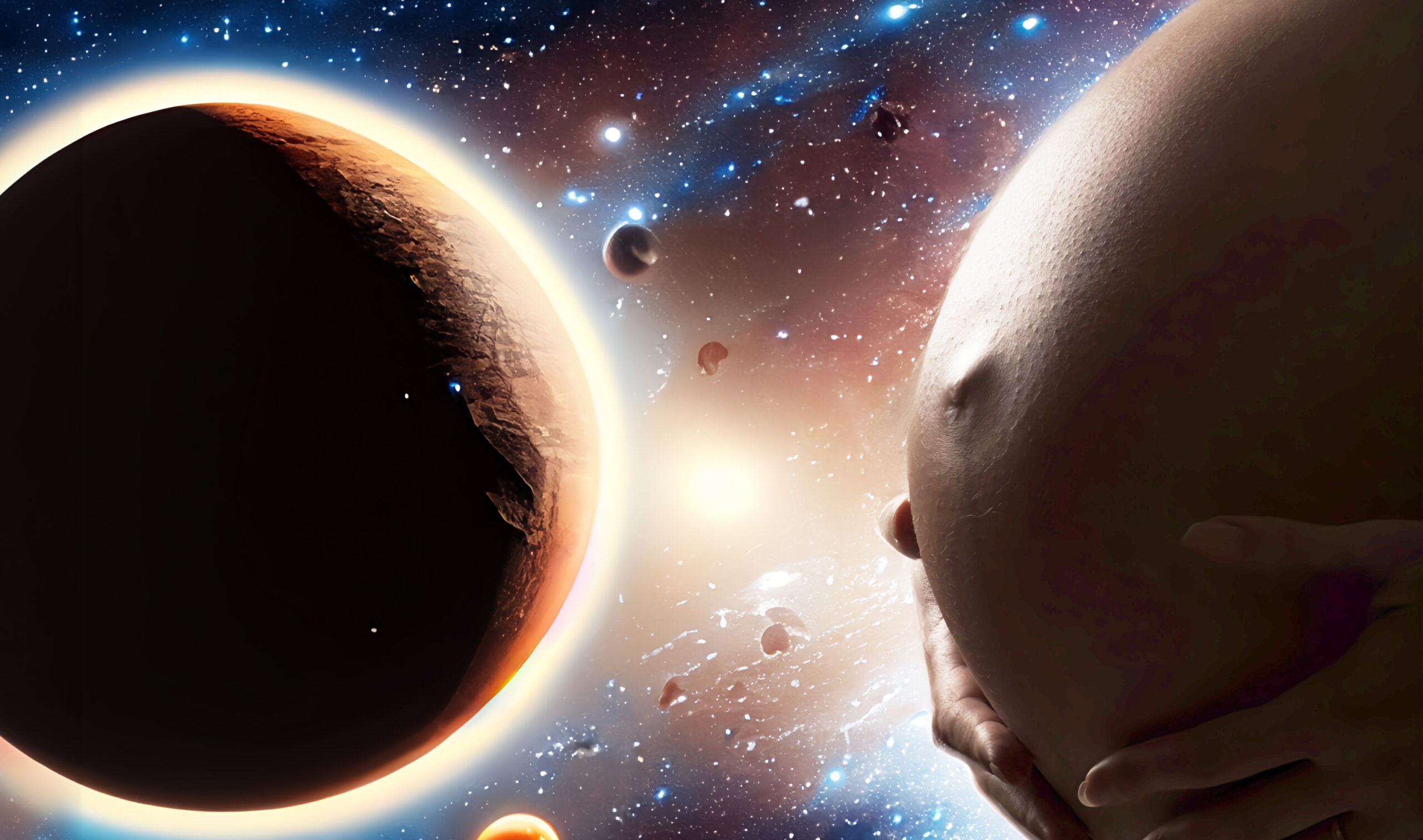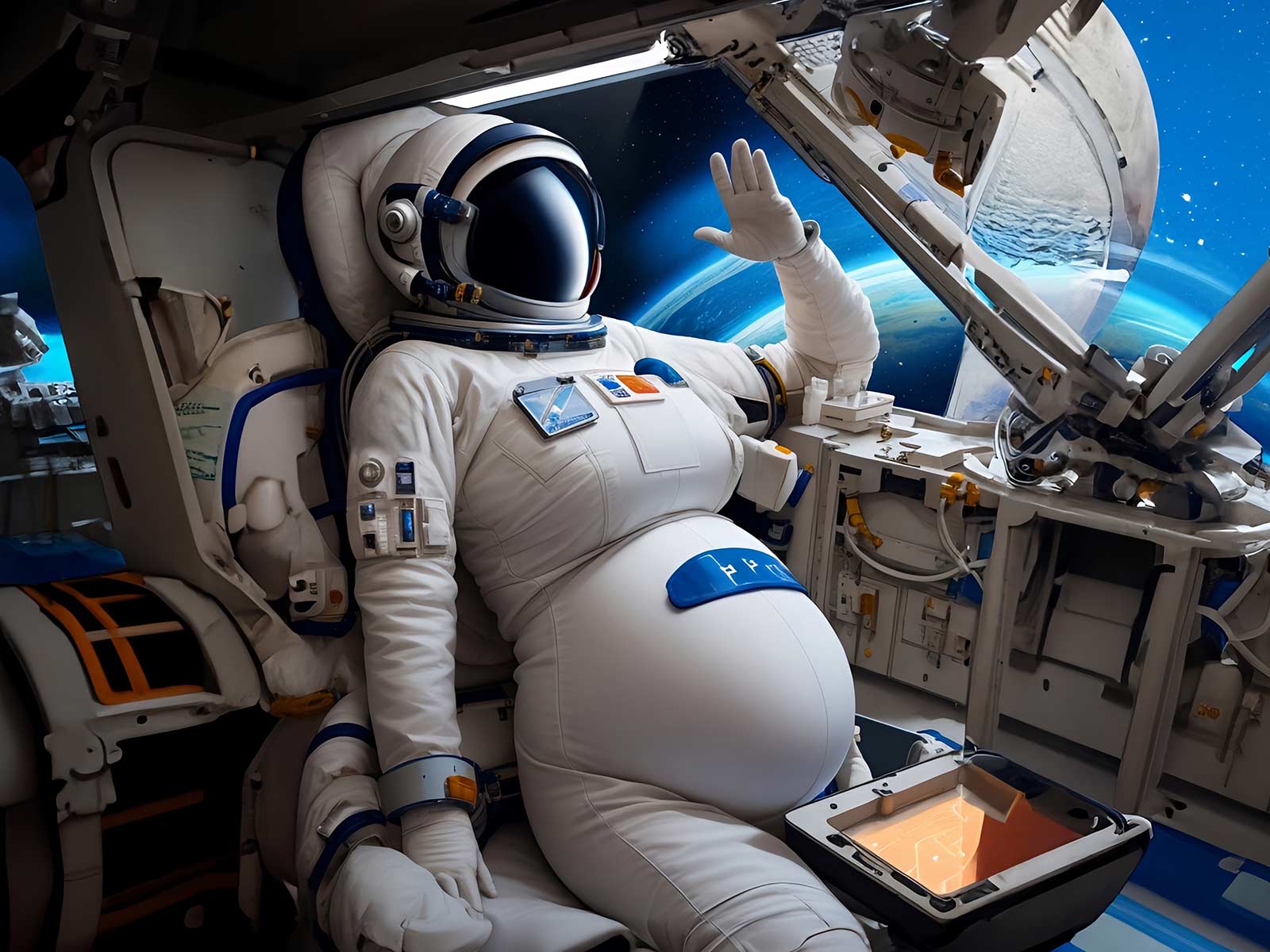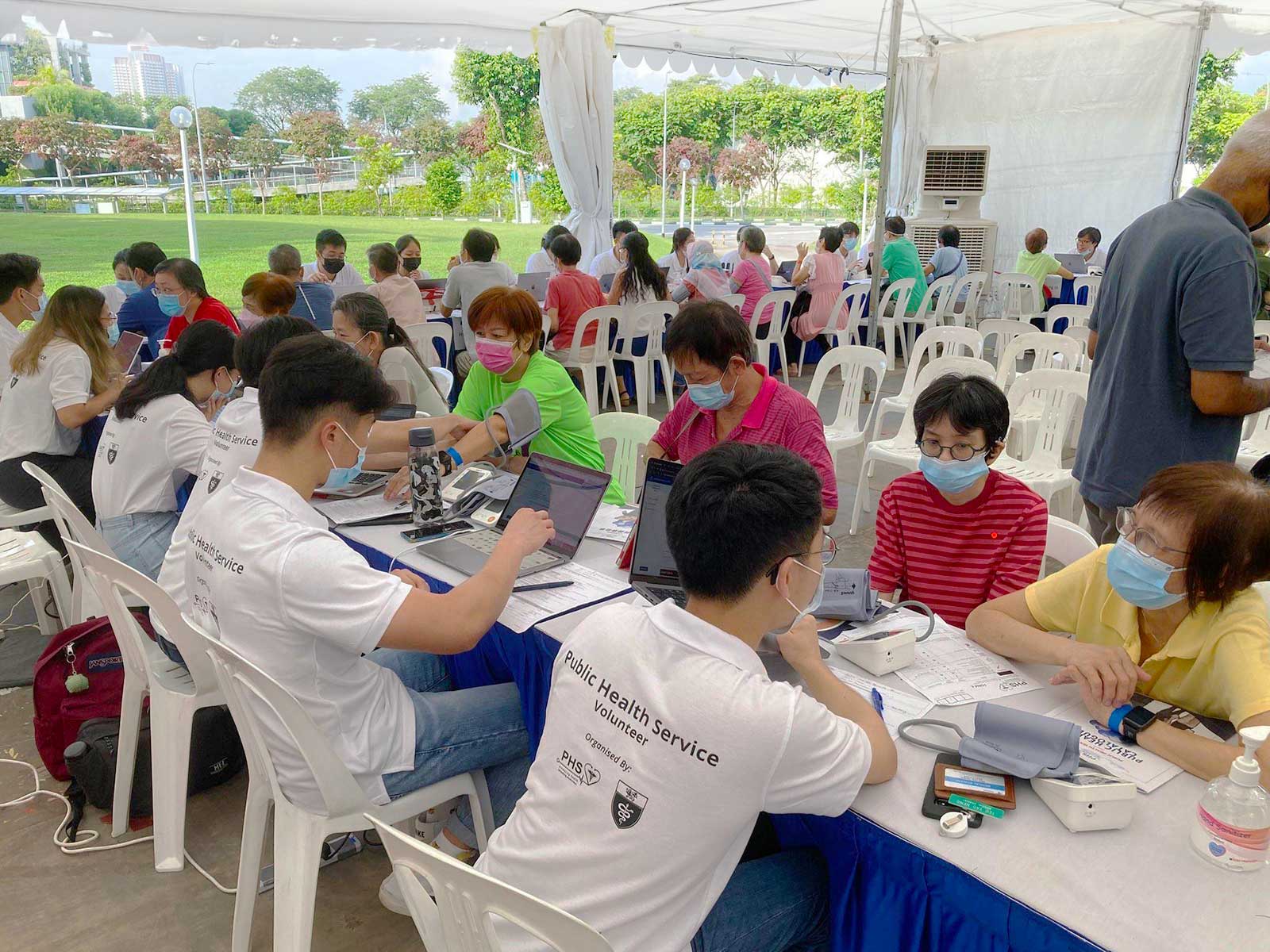
Issue 47
Aug 2023
ETHICALLY SPEAKING

If a permanent Martian settlement of any scale is to be established and maintained, it’s likely women will need to get pregnant and give birth beyond Mother Earth. NUS Centre for Biomedical Ethics’ Victor Cole looks at the implications.
If humans are to survive as a species, the late cosmologist Stephen Hawking once argued, at some point we will need to make our home among the stars because the earth will one day be engulfed by the sun.
More imminent threats to humanity’s survival include nuclear or biological war, runaway artificial intelligence, and climate change.
The colonisation of the Earth’s Moon, followed by Mars, is a current ambition of government agencies such as the National Aeronautics and Space Administration (NASA), the China National Space Administration, and private organisations such as SpaceX.
Next month, four volunteers will begin a year locked in a 3D-printed simulated Mars habitat, as part of efforts by NASA to send humans to the red planet as early as the 2030s.
Elon Musk, founder of SpaceX, sees 2029 as the earliest date humans might first step on Mars. The Starship test, and explosion, last month was part of his attempt at making that happen.
The distances between Mars and Earth are great, and there are limited numbers of favourable launch opportunities. If a permanent Martian settlement of any scale is to be established and maintained, it seems likely that women will need to get pregnant and give birth beyond Mother Earth.
Moreover, if human history is any guide, it is reasonable to conclude that the long-term cohabitation of men and women on Mars will inevitably result in pregnancies.
In early preparation for this, researchers at the Department of Obstetrics and Gynaecology at the Yong Loo Lin School of Medicine, National University of Singapore (NUS Medicine) have started a joint programme with local space organisation, Singapore Space and Technology Ltd to study how radiation and microgravity will affect the human reproductive system.
It may be possible to resupply space colonies in our own solar system with people born on Earth in the early days of space colonisation, but there will come a point at which a space colony needs to be self-sustaining.
Should humans have children in space?
While some may ponder over the relevance of such research to Singapore, this research also raises ethical questions.
One question is: Should we aspire to have children in space? “Space” refers to anywhere beyond the terrestrial biosphere. It is the most hostile environment for humans to occupy, with reduced gravity (or “microgravity”) and high levels of radiation.
One way of responding to this question is to adopt a species-preservationist perspective that recognises the value of working to ensure the survival of our kind, even in the absence of an imminent threat.
It may be possible to resupply space colonies in our own solar system with people born on Earth in the early days of space colonisation, but there will come a point at which a space colony needs to be self-sustaining.
This is because of the huge financial and logistical challenges of transporting significant numbers of people from Earth. But it is also because the hedge against extinction events that the space colony provides depends upon the future non-existence of human life on Earth.
Another way of responding to this question requires us to consider not the species, but the individual members of it who are born in space, and whether they are in some fundamental sense wronged by being born under suboptimal conditions (which could be environmental, biological or both).
Certainly, their ability to function well enough to have a life that is ultimately of some value to them, i.e. preferable to non-existence, should be of paramount concern.
To the extent that future scientific knowledge about embryonic, foetal, neonatal, infant and child development in space points to the likelihood that space-born individuals would have such a positive prospect, bringing them into existence would not be wrong in and of itself. (There may well be other reasons not to do so, for example, a future space colony’s or spacecraft’s inability to sustain a particular number of additional lives at a particular point in time, but these do not count fundamentally against having children in extra-terrestrial environments.)
Are terrestrial ethics fit for space?
However, despite the plausibility of any long-range ethical justification for human reproduction in space, there remain many issues to address about the steps which may legitimately be taken in pursuit of that goal.
For example, when (if at all) and under what conditions should we allow conception, gestation, and birth to take place in space (or a realistic simulation of it) for research purposes?
Allowing researchers to conduct experiments in later stages of embryonic development than is currently permitted in jurisdictions such as Singapore or to expose pregnant women and their foetuses to the threats of space conditions would prove highly controversial. While women can consent to such risks, embryos (and future children) cannot.
Thus, without breaching any established ethical boundaries, and with the careful stewardship of resources as a key guiding principle, home-grown space research in the life sciences is opening up new frontiers in human health as well as contributing to the establishment of a platform for our future population of the final frontier.

But what about simply allowing astronauts the freedom to have children in space in a kind of experiment in living? This would circumvent the challenges of ethical review that scientific researchers are subject to and avoid the need to establish new ethical guidelines for research. However, in absence of evidence of how space pregnancies might fare, it could be considered reckless and morally wrong for mother and child to be exposed to such risk.
Furthermore, as much as space pregnancies occurring outside of formal studies might yield useful data, standard “terrestrial ethics” suggests we should not encourage or facilitate them if they pose significant risks to unborn children.
The need for properly conducted scientific research into extraplanetary reproduction cannot be dismissed if we want to forge an ethical human future in space. Some pushing at the boundaries of what currently constitutes ethical research may well be required if we want to properly understand how space conditions might affect the later stages of pregnancy as well as childbirth and the early stages of life.
However, those challenges lie some way off and for now there is much to be gained from conducting basic scientific research into the implications of the space environment for pregnancy at the earliest stages of human development before any child is gestated in space.
This returns us to the scientific work currently being undertaken in the NUS lab. Here, scientists are studying how foetal stem cells and the placenta respond to variations in simulated microgravity and thus how the rate of foetal growth in space may differ from that on Earth.
These experiments promise much for our understanding not only of space pregnancy, but also of mechanisms involved in a host of human reproductive diseases, from placental disorders to preterm birth and gynaecological cancers. No child is affected, so these kinds of research are permissible within standard terrestrial ethics.
Thus, without breaching any established ethical boundaries, and with the careful stewardship of resources as a key guiding principle, home-grown space research in the life sciences is opening up new frontiers in human health as well as contributing to the establishment of a platform for our future population of the final frontier. But perhaps it is time to consider whether we need a new space ethics for our next small steps for “person-kind”.
More from this issue

AFFAIRS OF THE HEART
Obesity Will Be the Leading Risk Factor for Heart Attacks within Three Decades

OFFICE FOR STUDENTS
Community Service Programme Gives Students Practical Learning Opportunities

